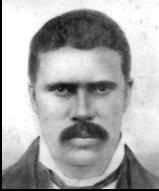From 1887 until the early 1900s an all-black company of volunteers supplied much of the manpower for Charlotte's fledgling fire department.
(The fire company took their name from 'The Neptune' hand pump fire engine that was built by William Jeffers.)
In the later part of the 1800s, the Neptunes earned a reputation as skilled volunteers who often engaged in good natured competition with white firefighters.
This included races to see who could get to a fire scene first!
+ + + + + + +
UPDATE:
The Carolina Room of the Charlotte Mecklenburg Public Library maintains an original ledger statement from 1867 that lists the names of African-American citizens who were paid work “working the new fire engine”. (Thanks to librarian Leslie Kesler!)
Undated. Courtesy CFD Fire Museum.
+ + + + + + +
The Neptunes were a mix of prominent African-American businessmen, educators and community leaders, working alongside common laborers. Records show the city even paid some of the team's expenses, though its equipment was typically hand-me-downs from the white firefighting companies, officials said.
With special thanks to CFD Battalion Chief Tom Link for his valuable input!
+ + + + + + +
June 26, 1892
September 30, 1892
October 6, 1892
January 14, 1893
March 7, 1893
June 2, 1893
June 8, 1893
July 8, 1893
September 9, 1893
April 21, 1894
August 18, 1896
June 17, 1897
July 8, 1897
February 12, 1899
+ + + + + + +
+ + + + + + +
A nice recap written in 1912
December 19, 1912
+ + + + + + +
More on the egg disaster.
A LIFE FOR AN EGGPhoto of Samuel Richardson at rightBloodshed After the Fire----Sam Richardson, a Colored Fireman, Runs into Wilder's Drug Store and Drops Dead on the Floor--Killed by a Fellow Fireman | ||||
| ||||

.jpg)
































































